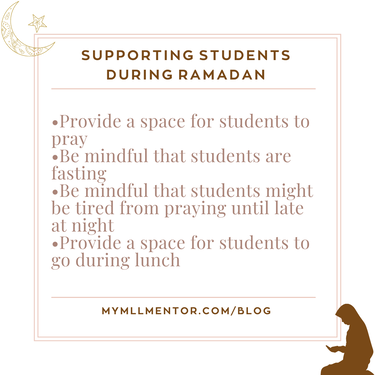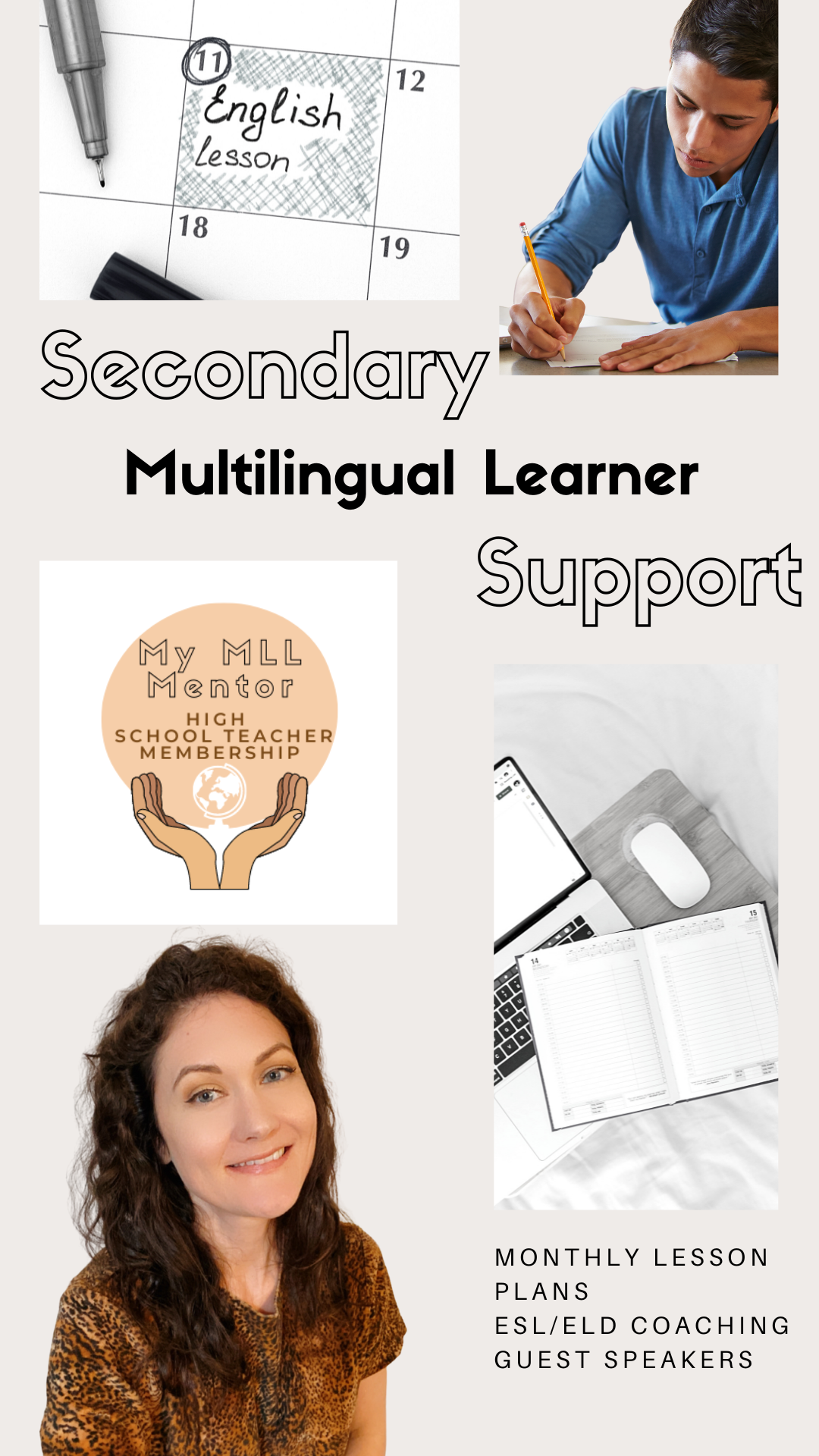|
Originally posted 4/16/22; updated on 4/1/23.
If you teach multilingual learners, or MLLs/MLs, you may be familiar with Ramadan. This period of reflection and celebration is hard to miss if you serve students who happen to be Muslim in your ESL classes! Ramadan follows the lunar calendar, and it lasts a full month. No matter what your thoughts are on religion, there are reasons why we should be aware of Ramadan and be mindful of certain things we can do to make students feel comfortable. Ramadan may affect how students are feeling in class during this month and it may also impact schoolwork. Throughout the month, those celebrating Ramadan will fast and stay up late praying and reflecting with their family members. Here are some important tips to assist them during the school day. Provide a place for students to go during lunch. Muslims fast from dawn to dusk each day during the month of Ramadan. This could mean that they do not eat or drink from 5:30 am until 7:30 pm. It might be hard for students to watch others eat and drink during lunch, depending on the student. Some might be okay with being around others during this time; some might prefer a quiet place to sit and pray. In my high school, we would usually have at least one student and sometimes a little group come to our ESL class area to pray. It made my heart happy that they felt safe and comfortable to come to us for this! Is there a space in your school where you could provide an area like this? Provide a place to pray or have quiet. This may look like your classroom or an area of your school, or maybe it is that you let students step outside in the hallway to pray. Ramadan is a time for reflection, spiritual discipline, and deep study of the Quran. According to Pew Research Center, Muslims pray five times throughout the day along with a night prayer called Tarawih during Ramadan. If you are a school administrator, what places in your building might provide some solace for these students? Are there any rooms or areas where other students may not be? Is there an office that could be turned into a temporary prayer space? Think about it and communicate it to your staff so they can let their students know. Make it a safe haven where they can come, no questions asked during this time (just as long as their teachers know). Be mindful that students may be tired. For those of us who do not fast, it may seem hard enough! But what about fasting AND being tired? For me personally, I know it would affect my cognitive functioning if I went to sleep around eleven or midnight and woke up around 5. In "Proper sleep essential during Ramadan fasting", authors recommend those who celebrate to try to go to bed early by 11pm and sleep 4 hours following Iftar, wake up at 3.30am ready for Suhoor and Fajr and return to sleep at around 5am for 2 hours. Our students may not be able to go back to bed around 5am because many may ride the bus and have to catch it early, so going to school tired is common. Let's show our students celebrating Ramadan some grace and learn from their discipline and reflections during this time. We can also learn a lot about their culture and families! And remember- this is also for some, a favorite and joyous time of year! See more of the joy and celebration in this Facebook video. How do you support your students during Ramadan? Leave a comment below to give fellow teachers and administrators some ideas!
1 Comment
ML
4/10/2022 07:23:28 pm
Thank you for this message. I don't have any Muslim students, but l know they are in the school and l wanted something to share with the principal.
Reply
Leave a Reply. |
AuthorI support middle and high school teachers through monthly lesson plans, coaching, and guest speaker offerings in our Secondary ESL Teacher Membership. Archives
April 2023
Categories
All
|



 RSS Feed
RSS Feed
